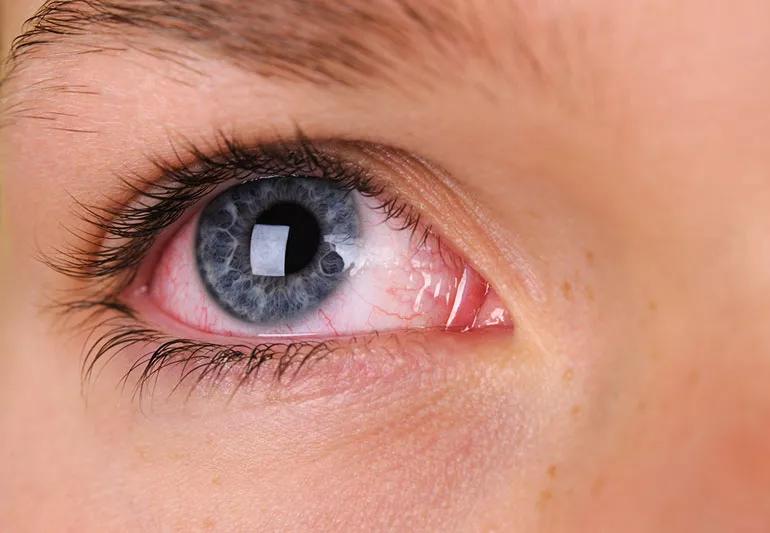
Image content: This image is available to view online.
View image online (https://assets.clevelandclinic.org/transform/f4f3f504-7e8a-4185-8e91-7a39450a9693/redEye-185255250-770x553_jpg)
Woman's red eye closeup
It seems like your eyes are always red, and people are starting to notice. (Side-eye, much?) You left the all-nighters and partying back in your college days, so what gives? Ophthalmologist Catherine Hwang, MD, brings into focus the possible causes of your bloodshot eyes — and when you should see an eye doctor.
Advertisement
Cleveland Clinic is a non-profit academic medical center. Advertising on our site helps support our mission. We do not endorse non-Cleveland Clinic products or services. Policy
Advertisement
Dr. Hwang emphasizes when in doubt, get it checked out. “Since most of these symptoms are similar, it’s important to see an eye doctor who can distinguish between what’s concerning and what’s not.”
Go the “better safe than sorry route” if you experience one or more of these symptoms along with bloodshot eyes:
Uveitis is inflammation in the eye’s iris and lining. It can cause red eyes, light sensitivity and pain. Left unchecked, uveitis can lead to eye conditions such as glaucoma, cataracts or even blindness. While prescription eye drops often clear it up, your eye doctor may need to run tests to find out what’s causing it.
Rarely, there can be tumors in the eye or on the surface of the eye. They can be tricky to spot on your own, especially since you may not experience symptoms. If you have unexplained eye irritation or vision changes, see an ophthalmologist right away.
Dr. Hwang says they may:
These drops work by shrinking the blood vessels on the surface of the eyes and reducing the blood flow to them. But less blood flow means less oxygen and nutrients, too. So when you stop using the drops, the blood vessels get even bigger to make up the difference. You’ll end up with eyes that are redder than before.
Advertisement
Advertisement

Delivered every Tuesday!
Sign up for our Health Essentials emails for expert guidance on nutrition, fitness, sleep, skin care and more
It's a letter about the news!

Every two weeks once
Sign up for our Health Essentials emails for expert guidance on nutrition, fitness, sleep, skin care and more.
Learn more about our editorial process.
Advertisement
How to tell the difference between harmless redness and issues that demand attention
How and when to use over-the-counter drops
Most recommended precautions center around minimizing bruising or swelling
Even one drink can have an impact on your cognitive function leading to slurred speech, blurred vision and impaired memory
Understand who may (and may not) benefit
Lorem ipsum dolor sit amet. Et odio Quis vel ipsam omnis eum alias deleniti et placeat impedit non voluptas galisum hic autem enim et cupiditate aliquid. Est beatae quidem non facilis autem ut commodi nisi aut tempore rerum et dolores voluptatem cum enim optio id sapiente quasi. Ad laboriosam officiis 33 cupiditate sequi ea voluptatum consectetur qui necessitatibus voluptate et quasi doloremque et facere explicabo quo explicabo officia
Type 2 diabetes isn’t inevitable with these dietary changes
Applying a hot or cold compress can help with pain
Pump up your iron intake with foods like tuna, tofu and turkey